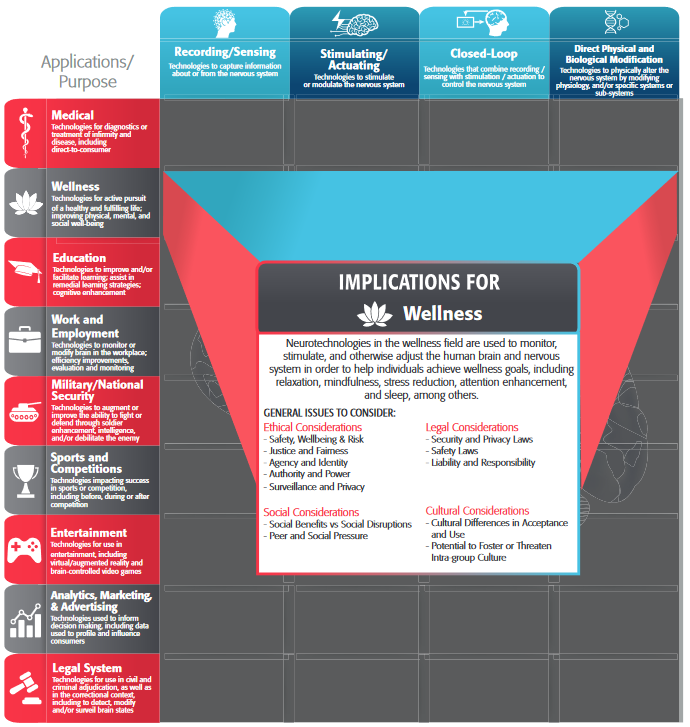Welcome to the IEEE Brain Podcast Series. In this series, we interview some of the top subject matter experts in brain research and neurotechnology. IEEE Brain Podcasts provide you with access to the industry’s best of the best.

Q&A with Dr. Jennifer Gelinas, Assistant Professor of Neurology in the Institute for Genomic Medicine at Columbia University Medical Center
Dr. Gelinas is focused on understanding how neural networks can be disrupted by pathologic activity, especially epileptic activity and she discusses with us how better bio markers for neuro psychiatric disease brings hope for new therapeutic targets for these types of disorders.
We sat down with Dr. Gelinas at the 2018 IEEE Brain Initiative Workshop on Advanced NeuroTechnologies in San Diego, California to discuss her research, how she came to work in neurotechnology, how collaboration has benefited her research, and much more.

Q&A with Dr. Kip Ludwig, Associate Director of the Mayo Clinic Neural Engineering Laboratories
In partnership with IEEE EMBS. Kip Ludwig started his career in the bio-chemical/bio-molecular field, but when a rat beat him at a video game using Brain Machine Interfaces, he knew his future was in neurotechnology. Dr. Ludwig, Mayo Clinic Neural Engineering Laboratories Associate Director, has dedicated his career and his research to the field of neurotechnology and has made incredible strides in implantable and injectable systems, bionic eyes, Deep Brain Stimulation, and more. Through his work with the White House Brain Initiative and the Mayo Clinic, he has been on the forefront of cutting-edge developments in neurotechnology that have enabled blind people to see and deaf people to hear. In this podcast, Dr. Ludwig shares his vision for the future of neurotechnology, how the IEEE Brain Initiative is essential to the development of new technology, and much more. Dr. Ludwig is well on his way to his career goal which is to solve every neural degenerative disease during his lifetime.

Q&A with Dr. Maryam Shanechi, Assistant Professor and Viterbi Early Career Chair in Electrical Engineering, University of Southern California (Part 2)
In this podcast, we continue our conversation with Dr. Maryam Shanechi, USC, Assistant Professor and Viterbi Early Career Chair in Electrical Engineering. Dr. Shanechi’s research focuses on decoding and manipulating brain signals. In this second podcast, she shares an overview of her work on Brain-Machine Interface (BMI) design and how she hopes to use BMIs to restore motor function, control anesthesia, and alleviate depression and post-traumatic stress disorder. Dr. Shanechi also shares how collaboration between mathematicians, computer scientists, electrical engineers, biomedical engineers, neurosurgeons and neuroscientists is crucial in developing neurotechnology. In addition, she gives us a glimpse into her goal of using BMIs to not just treat disorders, but to enhance our natural functions and capabilities.

Q&A with Dr. Maryam Shanechi, Assistant Professor and Viterbi Early Career Chair in Electrical Engineering, University of Southern California (Part 1)
When it comes to decoding and manipulating brain signals, Dr. Maryam Shanechi is among the best. She has been recognized with awards such as the National Science Foundation CAREER Award, the MIT Technology Review World’s Top 35 Innovators under 35, and the Popular Science Brilliant 10, and is genuinely passionate about her work and research. In Part 1 of this two-part series, Dr. Shanechi, USC, Assistant Professor and Viterbi Early Career Chair in Electrical Engineering, shares the challenges of studying the brain and the success she has had in her career. She also dives into the potential of Brain-Machine Interfaces to determine and treat neurological disorders, how her background in Control Theory influenced her decision to research the brain, and why she believes this is a very exciting era for engineers, mathematicians, and scientists.

Q&A with Dr. Jacob Robinson, IEEE Brain Co-Chair, Assistant Professor in Electrical and Computer Engineering and Bioengineering at Rice University, Adjunct Assistant Professor in Neuroscience at Baylor College of Medicine
In partnership with IEEE EMBS. With so many challenges and complexities surrounding the brain, it is imperative that neuroscientists and engineers work together to answer the hard questions and truly make progress in the study of the brain. That’s one of the reasons Dr. Jacob Robinson is not only involved in the IEEE Brain Initiative but is the Co-Chair. In addition, Dr. Robinson is an Assistant Professor in Electrical and Computer Engineering and Bioengineering at Rice University and is an Adjunct Professor in Neuroscience at Baylor College of Medicine. During this podcast episode, Dr. Robinson discusses the work his lab is doing in the field of Nano-neurotechnology and how they are using nanofabrication technology to create devices that can monitor and manipulate neural circuits. He shares his goals in working with engineers and other neuroscientists to understand the brain and help advance the treatment of neurological disorders. Dr. Robinson also gives us a glimpse into why he began studying the brain and how he believes that by understanding the brain, we can understand humanity and what makes us different from one another.

Q&A with Dr. Heather Benz, Staff Fellow at the FDA Center for Devices and Radiological Health
In partnership with IEEE EMBS. Virtual reality, prosthetics, biomedical engineering and research are just a few of the areas in which Dr. Heather Benz works on a day-to-day basis. As a biomedical engineer working as a Medical Device Staff Fellow at the FDA Center for Devices and Radiological Health, Dr. Benz experiences the sci-fi excitement that comes with working in new technology as well as using that technology to help people in need; her two passions. In this IEEE Brain podcast episode, Dr. Benz shares what it’s like working with the FDA to improve the lives of patients, how she came to be a biomedical engineer and what it’s like to be a woman in her field.

Q&A with Dr. Emery Brown, IEEE Fellow, Professor of Computational Neuroscience and Medical Engineering at MIT and Professor of Anesthesiology at Massachusetts General Hospital and at Harvard Medical School
In partnership with IEEE EMBS. Over 60,000 people in the United States undergo anesthesia every day which makes Dr. Emery Brown’s research on the effects of anesthesia on the brain pertinent and relevant in today’s world. Not only is Dr. Brown a Professor of Computational Neuroscience and Medical Engineering at MIT, Professor of Anesthesiology at Massachusetts General Hospital and at Harvard Medical School, and a practicing anesthesiologist at Massachusetts General Hospital, he is also an IEEE Fellow and member of the IEEE EMBS Scientific Advisory Board. In short, Dr. Brown is extremely qualified to research anesthesia and the brain. In this IEEE Brain podcast episode, Dr. Brown shares how he started working in this field, his goals in researching anesthesia, how IEEE is contributing to understanding the brain and much more.

Q&A with Dr. Sri Sarma, Assistant Professor of Biomedical Engineering at Johns Hopkins University in the Institute for Computational Medicine
In partnership with IEEE EMBS. When it comes to math, Dr. Sri Sarma is a brainiac, quite literally. As the Assistant Professor of Biomedical Engineering at Johns Hopkins University in the Institute for Computational Medicine, Dr. Sarma uses her electrical engineering and control theorist background to mathematically model the human brain. In her research, Dr. Sarma has been able to use electrical stimulation to treat Parkinson’s disease, seizures and other neural-related diseases. In this podcast, Dr. Sarma shares her passion for understanding the brain’s neural circuit and encourages young women interested in pursuing a career as an engineer to think outside the box and to not just think of an engineer as one who tinkers with tools, but one who saves lives.

Q&A with Dr. Eric Perreault, Chair of the Biomedical Engineering Department at Northwestern University and Professor of Physical Medicine and Rehabilitation
Welcome to the IEEE Brain Podcast Series, an IEEE Future Directions Digital Studio Production. Our first guest is Dr. Eric Perreault, Chair of the Biomedical Engineering Department at Northwestern University and Professor of Physical Medicine and Rehabilitation. Dr. Perreault works tirelessly to understand the muscle mechanics of the upper extremities, particularly the arm, following neural motor injuries due to a stroke or spinal cord injury. How does he do it? Through research and experimentation around how the brain controls movement, collaboration with other researchers and scientists working in neuro-mechanics, using robots attached to unimpaired subjects, and much more. His work doesn’t come without a few challenges, but Dr. Perreault is pursuing his research with the end goal of helping the very people he’s working to save.





